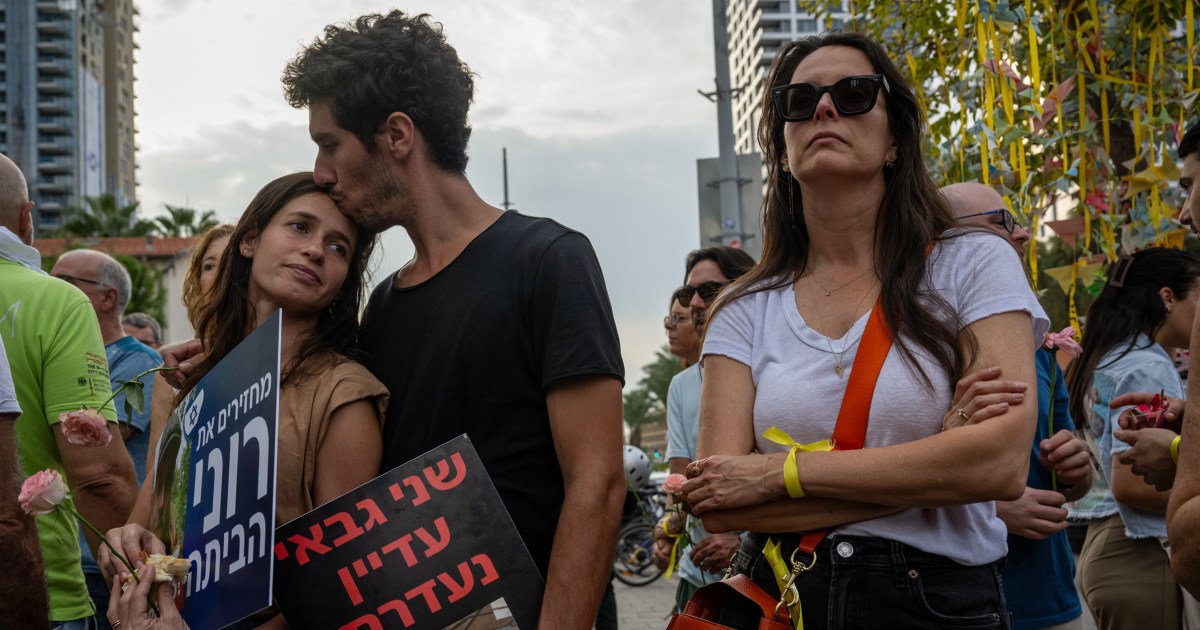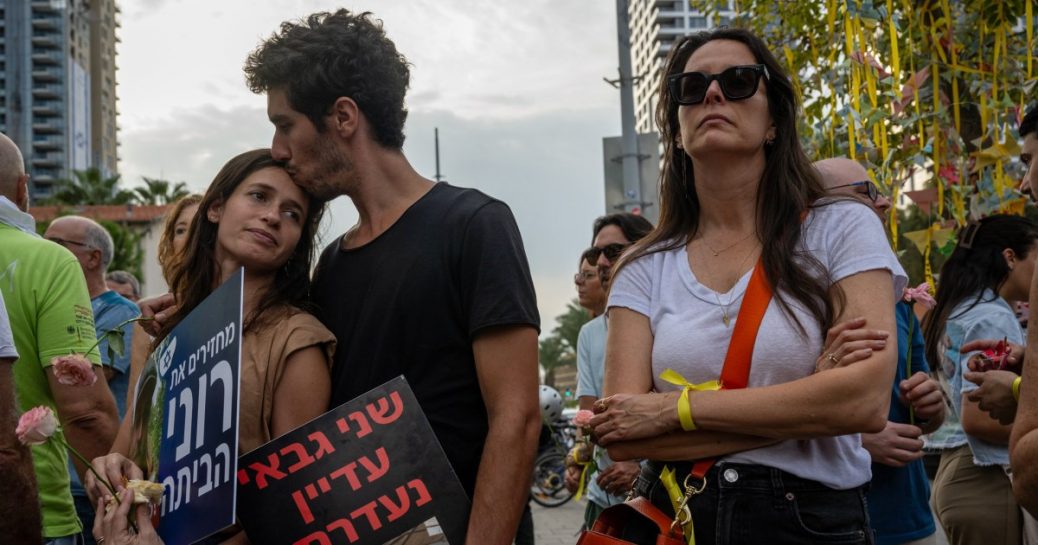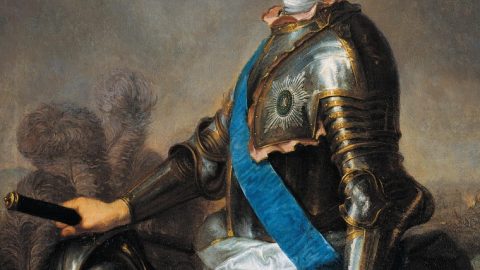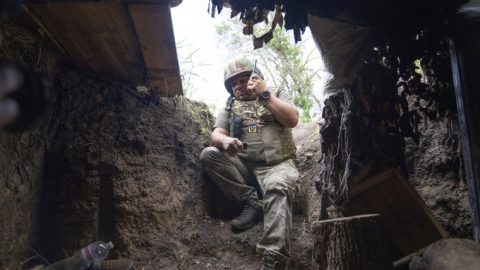
DOHA, Qatar — Talks to free some of the 239 hostages held by Hamas stalled Friday after the group demanded that Israel allow fuel deliveries to Gaza and Hamas declined to guarantee the release of a large number of foreign captives, a former U.S. official with knowledge of the negotiations said.
“Hamas has been insistent on receiving fuel,” said the former U.S. official, who asked not to be named because they were not authorized to talk publicly. “The Israel and U.S. side, plus other countries, want a large batch of their citizens released.”
The former U.S. official, an Israeli official and a diplomat with knowledge of the talks said discussions broke down before Israel launched the second phase of its offensive Friday evening and sent ground troops into Gaza.
“Talks were going very well on Thursday, and negotiators were hopeful a deal could be reached over the weekend,” said the diplomat with knowledge of the talks, who also was not authorized to talk publicly and spoke on the condition of anonymity. “But differences emerged early Friday, which led to talks stalling.”
The negotiations to free the 239 hostages, including children and the elderly, have been ongoing since Hamas’ Oct. 7 surprise terrorist arrack killed more than 1,000 Israeli civilians. After Hamas breached Israel’s border wall, other groups from Gaza seized captives as well.
Roughly half of the captives are believed to be individuals with passports from as many as 25 foreign countries, including an estimated 54 Thais, 15 Argentines, 12 Americans, 12 Germans, six French and six Russians.
Earlier talks, mediated by Qatar, resulted in the releases of four hostages, two Americans and two elderly women, on two separate days.
Public statements by White House officials Friday, in hindsight, appeared to be part of an effort to get U.S. hostages out. “We would support humanitarian pauses for stuff getting in, as well as for people getting out,” White House National Security Council spokesman John Kirby told reporters Friday. “That includes pushing for fuel to get in and for the restoration of electrical power.”
Jason Straziuso, a spokesman for the International Committee of the Red Cross, which acted as an intermediary in the first two hostage releases, said enormous levels of trust would be needed for a large number of captives to be freed.
“With a large group, the logistics just become that much more difficult. There’s a limit to how many people we can put in a Red Cross Land Cruiser. There’s a limit to how many vehicles we have in Gaza. There’s a limit to how much fuel we have right now,” Straziuso said. “A large-scale release will take a lot more planning, a lot more faith between the sides, a lot more trust that it can happen without incident.”
By Friday evening, trust had evaporated. Israeli officials accused Hamas of dragging out the negotiations to delay a ground invasion. They bluntly dismissed reports of progress in hostage talks. “I suggest do not pay attention to the rumors,” said a spokesman for the Israel Defense Forces, Rear Adm. Daniel Hagari. “This is psychological terror by Hamas.”
After Israel’s bombing and ground operations in Gaza intensified Friday night, a Hamas spokesman, Dr. Basem Naim, told NBC News on Saturday, “You can’t talk about negotiations while they are slaughtering our people.”
Later in the day, Hamas’ leader in Gaza, Yahya Sinwar, said in a statement on the group’s website that it was willing to continue to negotiate. “We are ready for an immediate exchange deal that includes the release of all prisoners in the prisons of the Zionist enemy,” Sinwar said, “in exchange for the release of all prisoners with the resistance.”
The Times of Israel reported that Israeli Prime Minister Benjamin Netanyahu said at a news conference Saturday night that an exchange of all Palestinians jailed for security offenses for the captives held in Gaza was among the options Israel is considering.
Israeli Defense Minister Yoav Gallant told reporters that intensifying Israeli attacks was the best way to free captives. “The more we hit out at [Hamas], we know that they will be willing to come to some kind of agreement,” Gallant said, “and we will be able to bring our dearly beloved hostages home.”
Negotiators said they remained hopeful. The former U.S. official said the talks were at a “temporary impasse.” The diplomat with knowledge of the talks added, “The escalation has slowed down talks, but they’re still ongoing.”
Keir Simmons reported from Doha, Ken Dilanian reported from Washington and Josh Lederman reported from Tel Aviv.










Recent Comments